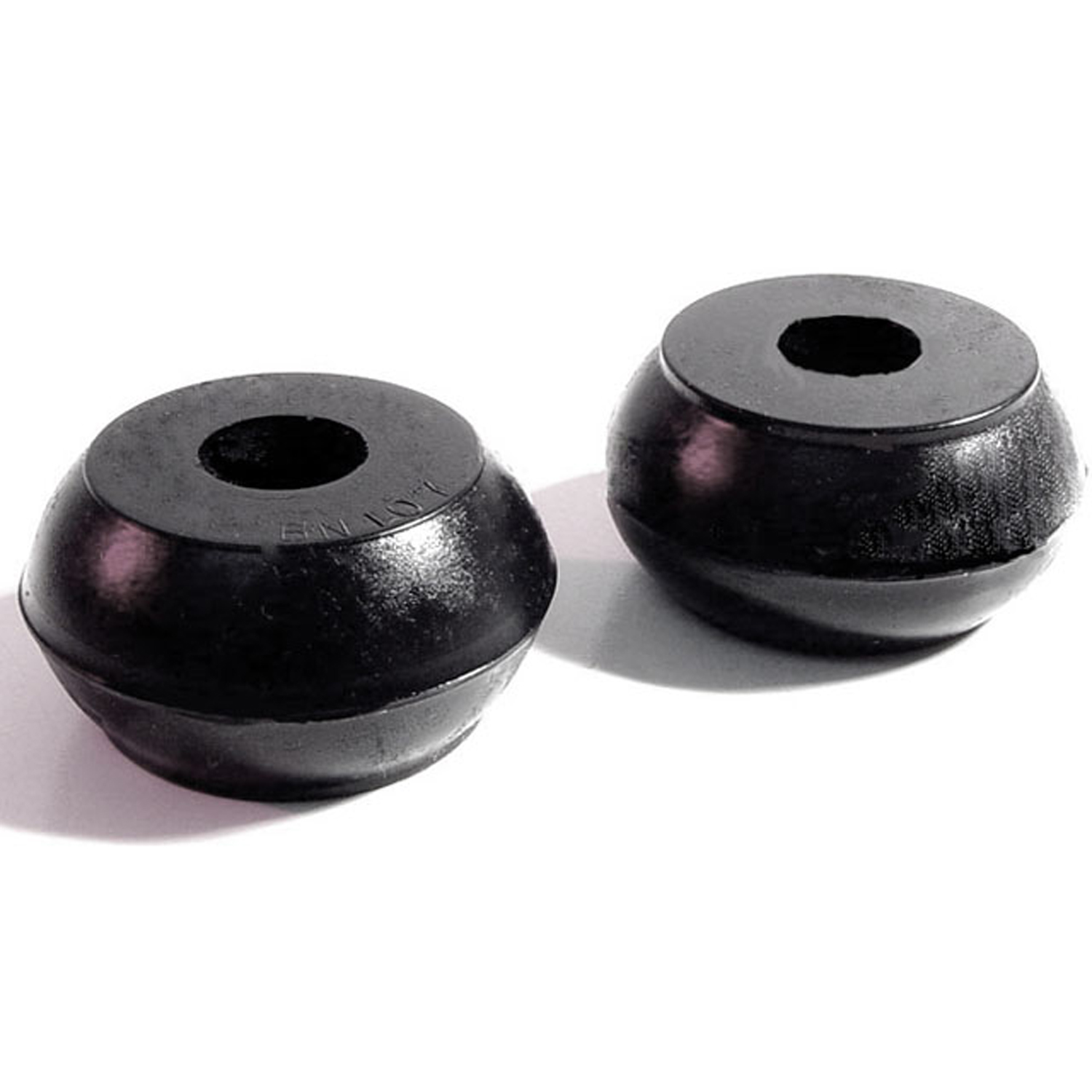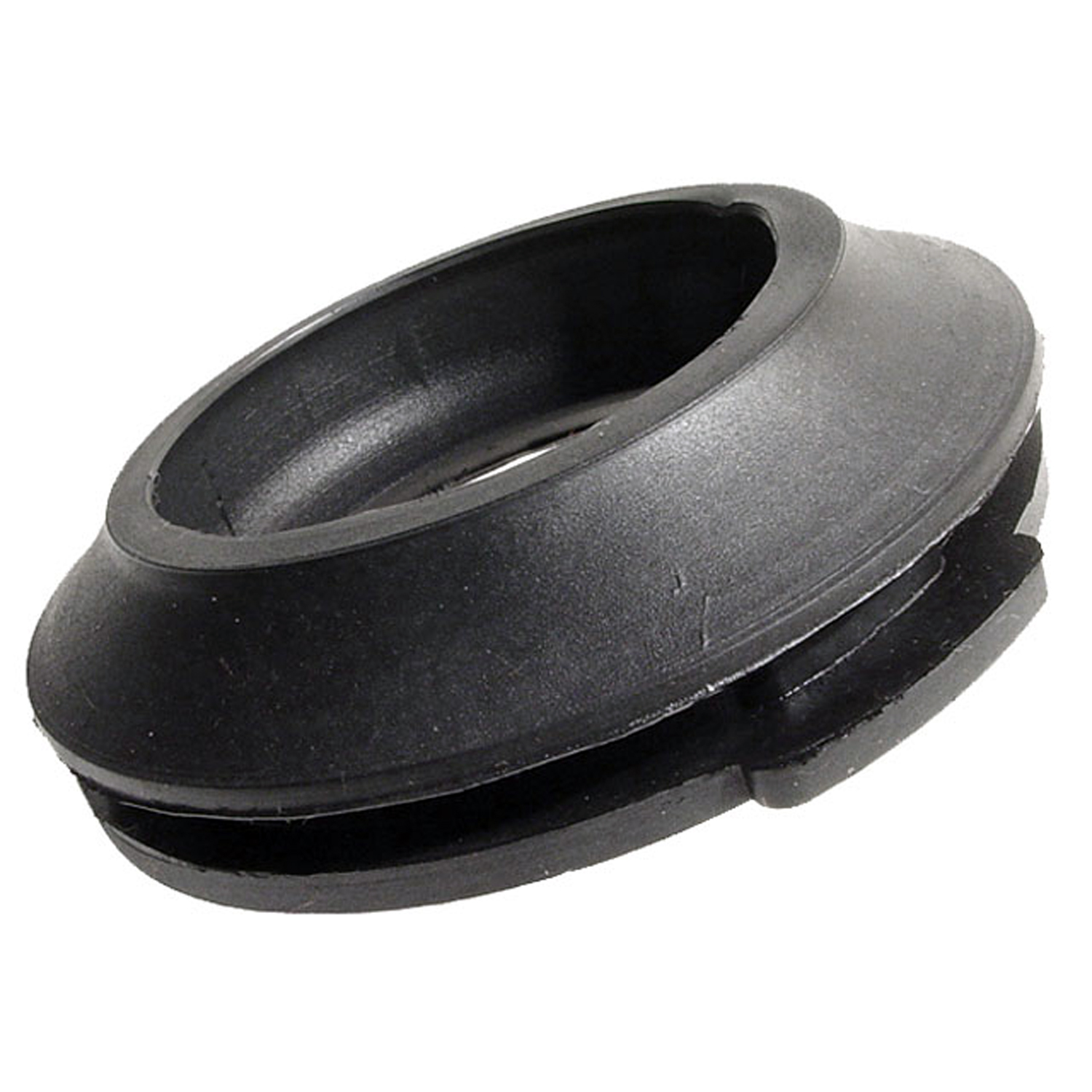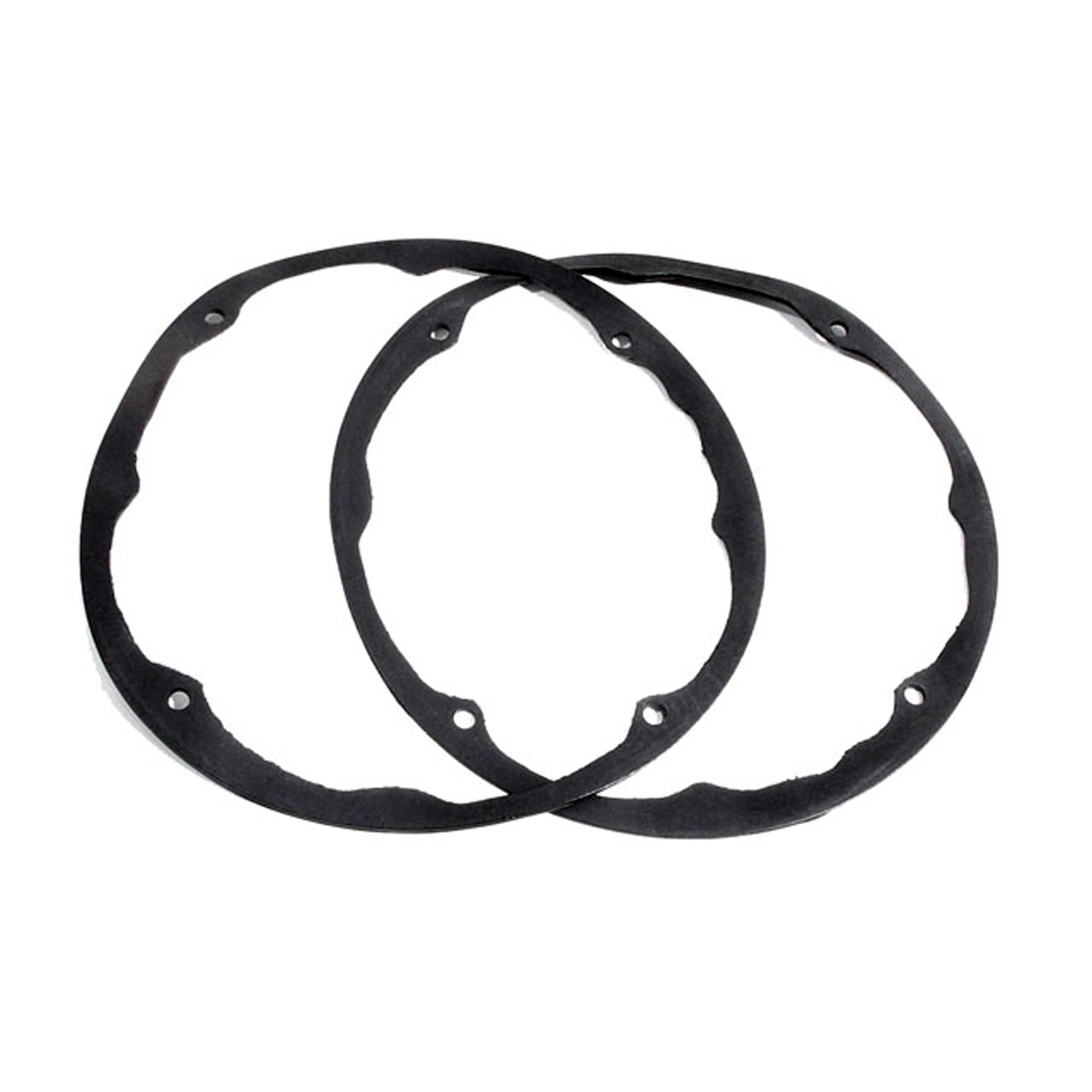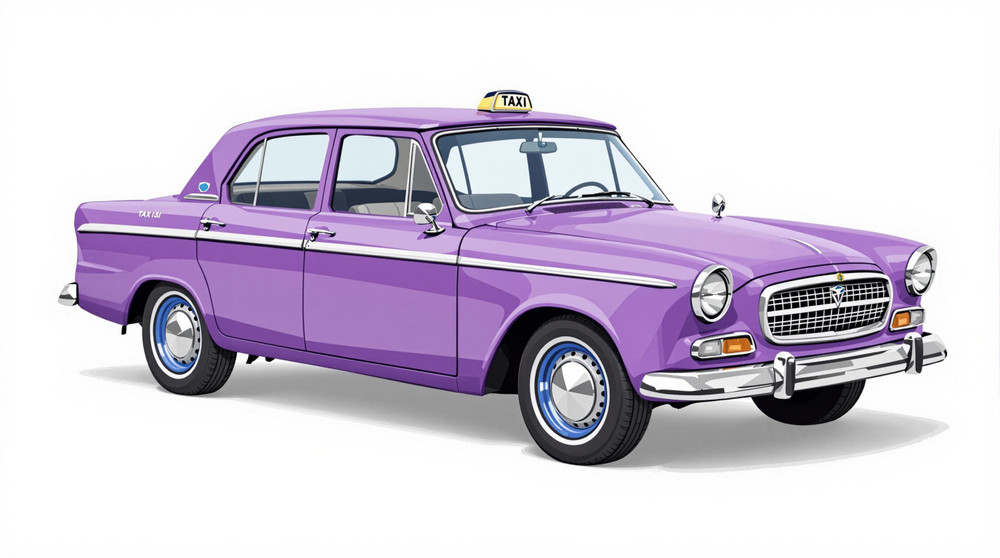Image of 1962 Studebaker Taxi, Note: These illustrations use artistic license and may differ from actual historical models.
Performance Metrics
Fundamental Metrics
Emotional Appeal
MMP Rating
| Engine Specifications | |
|---|---|
| Engine: | Studebaker 170 cu in (2.8 L) I6, Studebaker 259 cu in (4.2 L) V8 |
| Displacement: | 170-259 cu in (2.8-4.2 L) |
| Horsepower: | 90-180 hp |
| Torque: | 125-260 lb-ft |
| Compression Ratio: | 8.0:1 |
| Ignition System: | Distributor and coil |
| Cooling System: | Liquid-cooled |
| Performance Specifications | |
| 0-60 Time: | Estimated 10-15 seconds |
| 1/4 Mile Time: | Estimated 17-20 seconds |
| Top Speed: | 90-100 mph |
| Transmission and Drive | |
| Drive Type: | Rear-wheel drive |
| Transmission Type: | 3-speed manual, 4-speed manual, 2-speed automatic |
| Fuel and Efficiency | |
| Fuel System Type: | Carburetor |
| MPG: | Estimated 15-20 mpg |
| Dimensions and Brakes | |
| Brakes: | Drum brakes |
| Wheelbase: | 113 inches |
| Weight: | 3000-3500 lbs |
Note: Specifications for classic cars are given to the best of our ability, considering the limited and variant data available.
Unveiling the 1962 Studebaker Taxi: A Journey Through Time
The 1962 Studebaker Taxi stands as a testament to an era when functionality and style drove the automotive industry. Born from the innovative minds at Studebaker Corporation, a company that traced its roots back to the days of horse-drawn wagons, this vehicle was crafted during a time of great change. As the world pivoted from the optimism of the 1950s to the dynamism of the 1960s, the Studebaker Taxi emerged as a symbol of practicality and resilience. Notably, this model gained recognition for being part of the fleet that serviced New York City, becoming an icon of urban transportation.
Design and Innovation: A Glimpse into the Past
The exterior of the 1962 Studebaker Taxi was a blend of simplicity and subtle charm, with clean lines and an unassuming profile that belied its sturdy construction. Its design was a reflection of Studebaker's commitment to offering reliable vehicles during a time when flamboyance was often favored. Inside, passengers were greeted with durable materials meant to withstand the rigors of daily use in city transit. The technological features were modest by today's standards but included innovations like an automatic transmission and power steering – conveniences that were appreciated by drivers navigating congested streets. While color options for private vehicles were plentiful during this period, taxis typically sported a yellow hue, making them easily recognizable in a sea of automobiles. The four-door sedan body style was predominant for its accessibility and practicality.
Historical Significance: A Legacy Cast in Steel
The 1962 Studebaker Taxi may not have revolutionized automotive design or technology in dramatic ways, but it played a crucial role in sustaining urban mobility during its time. It stood out for its durability and no-nonsense approach to transportation at a time when other manufacturers were focusing on luxury and performance. This workhorse's lasting influence is seen in how it set expectations for what a taxi should be: dependable, serviceable, and ever-present.
Performance and Handling: The Heartbeat of the City
Performance-wise, the Studebaker Taxi was designed more for reliability than speed. Its inline-six engine provided sufficient power for quick starts at traffic lights and safe merging into traffic, while its suspension system was tuned to handle potholes and uneven pavement with grace. The driving experience wasn't about thrill-seeking; it was about delivering passengers to their destinations comfortably and efficiently – all while providing drivers with an easy-to-operate machine that could endure long shifts on bustling city streets.
Ownership Experience: More Than Just a Fare
For those who owned or operated a 1962 Studebaker Taxi, it served various roles – from being a breadwinner as part of a taxi fleet to becoming an intriguing project for classic car enthusiasts. Maintenance was straightforward due to its simple mechanical design, making repairs manageable for average owners. Despite their workhorse nature, these vehicles have garnered respect among classic car aficionados for their resilience and unique place in automotive history.
Fun Facts: Trivia That Rides Along
The 1962 Studebaker Taxi has its share of interesting trivia. For instance, some models were equipped with a "Taximeter" that calculated fares – an essential tool for any taxi driver of the time. While not known for breaking speed records or starring in high-speed chases, these taxis have made cameos in films set in mid-century America, adding authenticity to historical settings. Criticisms were few but often pointed towards their utilitarian appearance when compared to more stylish contemporaries.
Collector's Information: Navigating Market Value
Today, finding a 1962 Studebaker Taxi can be as challenging as hailing a cab in rush hour traffic – they're rare but treasured finds in the collector's market. Production numbers weren't vast as they catered specifically to commercial use; hence surviving examples are somewhat scarce. As for value range, well-maintained specimens can fetch prices that reflect their rarity and historical charm; think mid-five figures depending on condition and originality. The market trend shows appreciation over time as enthusiasts seek out unique pieces of automotive history.
Conclusion: The Enduring Journey of an Iconic Workhorse
The 1962 Studebaker Taxi may not have been the fastest or most luxurious vehicle of its time, but it carved out a niche that has earned it lasting respect. From its humble origins to becoming an emblematic figure on New York streets, this classic car reminds us that reliability and service can leave just as powerful a legacy as speed and luxury. Whether you're behind the wheel or admiring from afar, the story of this steadfast taxi continues to captivate those who appreciate the wheels that keep our world moving.
1962 Studebaker Taxi Catalog of Parts
 1962 Studebaker Taxi Power Steering Bushing. 1-9/16" O.D., 7/16" I.D. Pair-BN 107Power Steering Bushing. 1-9/16" O.D., 7/16" I.D. Pair
1962 Studebaker Taxi Power Steering Bushing. 1-9/16" O.D., 7/16" I.D. Pair-BN 107Power Steering Bushing. 1-9/16" O.D., 7/16" I.D. Pair 1962 Studebaker Taxi Gas Filler Grommet. Perfect reproduction. Top 2-1/16" I.D-GF 45Gas Filler Grommet. Perfect reproduction. Top 2-1/16" I.D., 3-7/16" O.D. Each
1962 Studebaker Taxi Gas Filler Grommet. Perfect reproduction. Top 2-1/16" I.D-GF 45Gas Filler Grommet. Perfect reproduction. Top 2-1/16" I.D., 3-7/16" O.D. Each 1962 Studebaker Taxi Headlight Ring Seal. 8-5/8" O.D., 7-7/8" I.D. Pair-HR 16Headlight Ring Seal. 8-5/8" O.D., 7-7/8" I.D. Pair
1962 Studebaker Taxi Headlight Ring Seal. 8-5/8" O.D., 7-7/8" I.D. Pair-HR 16Headlight Ring Seal. 8-5/8" O.D., 7-7/8" I.D. Pair 1962 Studebaker Taxi Rubber Seal Behind Fender on Headlights-MP 979-CRubber Seal Behind Fender on Headlights. 8-7/8" wide X 10" long. Pair
1962 Studebaker Taxi Rubber Seal Behind Fender on Headlights-MP 979-CRubber Seal Behind Fender on Headlights. 8-7/8" wide X 10" long. PairWhy Choose Metro?
For over 100 years, Metro Moulded Parts has been the pinnacle of quality in classic car restoration parts. Our commitment to precision and authenticity in every component ensures a perfect fit and an OEM-level appearance.
- Expert Craftsmanship & Quality: Each part is a testament to our dedication to reliability and perfection, crafted from original designs and thoroughly tested.
- Advanced Technology: We use cutting-edge techniques to create flawless, long-lasting parts that surpass others in performance.
- SuperSoft Sponge – The Ultimate Door Seal: Not only are our door seals 30% softer than competitors', but they're also guaranteed to never leak. They effectively reduce wind and road noise, enhancing your classic car's comfort and driving experience.
- Proudly American: Our parts are a product of American craftsmanship, made in the USA with a spirit of excellence and heritage.
- Unrivaled Warranty: We back our products with a 30-year industry-leading warranty, a testament to our confidence in their quality.
Join us in preserving the legacy of classic cars with parts that are crafted for perfection, not just made.

